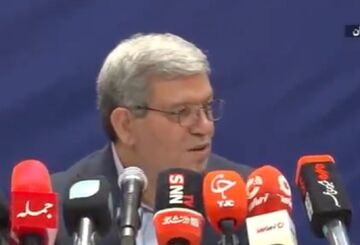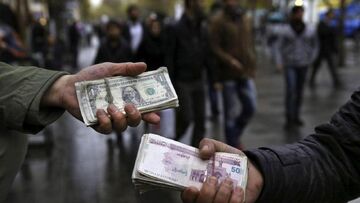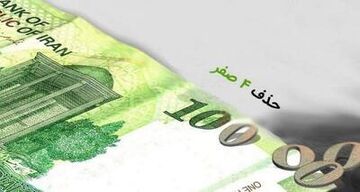TEHRAN (Bazaar) –Nader Entessar, Professor Emeritus of Political Science from university of South Alabama says that the war between Hamas and Israel will delay the progress in the normalization trend between Saudi Arabia and Israel.
“Saudi Arabia has had a long-standing, albeit hidden, relationship with Israel and would continue to build up this relationship if the regional situation reverts to the status quo ante,” Entessar told Bazaar News Agency.
Following is the full text of the Bazaar interview with Professor Entessar:
Q: During the war between Hamas and Israel, some sources in America and their affiliated media reported that Iranian money was blocked in Qatar again, which was later denied. Do you think there was a message hidden in this news?
A: There have been several conflicting reports since the initial story was reported by the Washington Post. Several Republican and Democratic lawmakers, including Senate Banking Committee Chairman Sherrod Brown (D-Ohio), have called on the Biden administration to renege on the agreement. The calls for reneging on the agreement have become louder in recent days, especially from the usual anti-Iran individuals and groups.
After the Washington Post's story was published, Iran’s mission to the United Nations issued a statement that read: “The senators in question and the U.S. government are all acutely aware that they can NOT renege on the agreement. The money rightfully belongs to the people of Iran, earmarked for the Government of the Islamic Republic of Iran to facilitate the acquisition of all essential and non-sanctioned requisites for the Iranians.” Subsequently, several Iranian officials, including the head of Iran's Central Bank, have denied the validity of the Washington Post's claims. At this time, it is not clear what the Biden administration's medium- to long-term plans are. What is clear is that at a minimum Biden intends to use the possibility of reneging on its oral agreement as leverage against Iran as the crisis in the Palestinian-Israeli conflict evolves.
Q: How likely is it that America will use these funds as leverage against Iran in the future? If so, what will be the harm to America?
A: As I stated in my previous answer, the possibility of Biden seeking to leverage Iran's funds in Qatar (or elsewhere) to put further pressure on the Islamic Republic is quite high. The oral agreement between Washington and Tehran (about which we know very little), just like the JCPOA, has no meaningful enforcement mechanism behind it. Therefore, the Iranian government is powerless to compel the U.S. government to abide by the terms of the latest agreement, whatever they are. We have to remember that the funds in Qatari banks are outside of Iran’s control so far the expenditures of the funds are concerned. It is true that the $6 billion transferred from South Korea to Qatar were deposited in Iranian accounts in Qatari banks. However, and this is the crucial point, Iran is not allowed to use its money without the Qatari banks receiving the approval of the U.S. Treasury Department. This is how the United States can exercise its leverage over Iran.
If Washington decides to either formally renounce its oral agreement with Iran (as Trump did with JCPOA) or simply not approve Iran's request to use its funds without formally renouncing the agreement, the end result will be the same. It may likely be the proverbial straw that breaks the camel's back.
In fact, predicting the trajectory of U.S.-Iran relations is becoming very difficult. For example, in the NBC program's "Meet the Press" on October 15, 2023, influential Senator Lindsey Graham (R-SC) threatened Iran with war if Hezbollah launches a major attack on Israel. Specifically, Graham stated that he would "introduce a resolution in the United States Senate to allow military action by the United States, in conjunction with Israel, to knock Iran out of the oil business. Iran, if you escalate this war, we're coming for you." Graham further referred to Iran as "the great evil" and the "source of the problem" that is now in the "crosshairs of the United States and Israel."
Q: What is the impact of this war on the future of Iran's nuclear negotiations?
A: The Israel-Hamas war is still evolving and it is hard to predict its future trajectory. However, if the current war evolves into a regional war, nuclear negotiating parties will have a very tall wall to climb, or the process of negotiations may completely unravel beyond repair.
Q: What effects will this war have on the future of Iran and Saudi Arabia relations?
A: So far, Saudi Arabia, like several other pro-American regimes in the Arab world, has tried to take a cautious approach and play both sides. If the Hamas-Israel war does not become a regional conflict, then I believe the current trend toward improving the Tehran-Riyadh rapprochement will continue. However, if a regional war develops, Saudi-Iranian relations will likely be affected negatively, especially if Riyadh is pressured by Washington to take a more pro-Western and pro-Israeli approach in its regional foreign policy.
Q: What is the effect of the war between Hamas and Israel on the normalization of relations between Saudi Arabia and Israel?
A: The war between Hamas and Israel will delay the progress in the normalization trend between Saudi Arabia and Israel. Saudi Arabia has had a long-standing, albeit hidden, relationship with Israel and would continue to build up this relationship if the regional situation reverts to the status quo ante. It is clear to me that Saudi Arabia has made a strategic decision to normalize its relations with Israel. However, the timing and circumstances of Riyadh's decision will be affected by developments on the ground and the outcome of the Hamas-Israel war.
















نظر شما